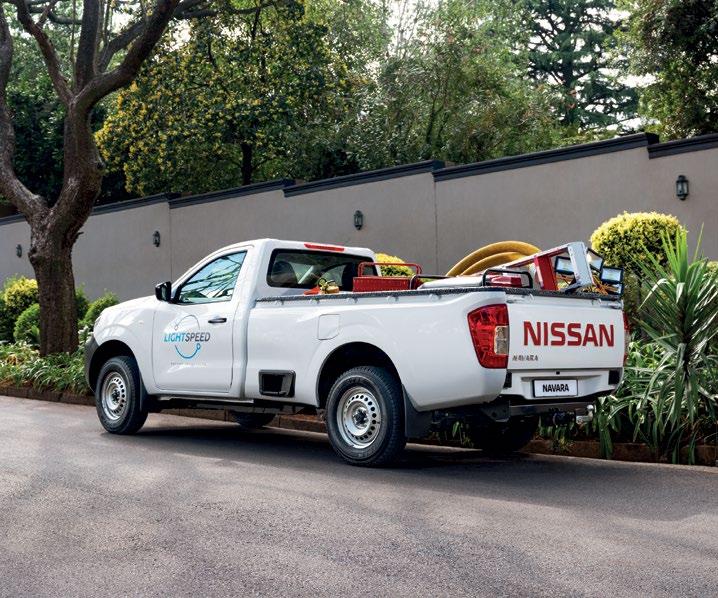
6 minute read
Access to funding for SMMEs demystified
Access to funding remains a critical growth enabler for small businesses in South Africa, and access thereof, continues to be incorrectly viewed as a difficult, painful and slow process due to lack of knowledge regarding application processes and inadequate awareness of the compliance documents required by financiers, writes Gordon Malebo, ESD Strategist.
In order to demystify small business funding challenges, we have to encourage information sharing platforms that seek to: • Increase awareness of the funding processes; • Confirm the standard compliance documents required and the importance thereof in accessing business funding; and • Provide knowledge on maintaining the funding readiness of the business.
At the recent Anglo American Zimele Funding Workshops, featuring key partners that included ABSA, IDC, Guard Risk, Bopano Capital as well as SEDA, all the abovementioned points were noted. Through collaborations such as these we are able to unlock opportunities within the South African entrepreneurship development ecosystem.
Fundamentals crucial to accessing finance for small businesses
The funding requirements are standard for all funders, and they will remain so for the near future. The requirements may slightly increase based on the complexity of the funding transaction.
A crucial takeaway from the Zimele workshops was that the entrepreneurs should exercise good financial management discipline that can be evidenced through financial records.
To drive impact, it is important for business advisors, consultants, and development practitioners in various ESD programmes to instil good financial management discipline and recordkeeping skills to the entrepreneurs when providing mentorship/advisory services. This knowledge must be imbedded in the business processes through policy and systematic implementation. All financiers emphasise the importance of the following documents as a prerequisite to unlocking funding, therefore, all entrepreneurs should always strive to have them at the tip of their fingers to achieve quick turnaround times in their funding applications:
1. Historical trading records
• Annual financial records, showing historical trading performance. • Management accounts, showing latest trading updates since the last annual financial report.
2. Future trading view
• Cash flow projections, showing the future trading outlook for a minimum of 12 months.
It is important to provide assumptions to the projections so that the financier can understand the logic behind the numbers. It is also crucial to include sensitivity scenarios to evidence the level of consideration taken for possible risk factors that may have a negative effect on the trading performance should they materialise. • Secured contracts/purchase orders should be provided to support the revenue figures indicated on the projections.
3. Directors financial position
All company shareholder’s/directors’ personal ability to manage finances will be assessed via credit records (available through credit bureaus) and their financial positions through personal assets and liabilities statements. As an entrepreneur, it is important to guard against a poor credit record as this might render you and your business high risk to possible financiers or creditors.
Integrity remains a crucial element of the funding process, hence the importance of upfront disclosure of a poor credit history, the circumstances that led to the negative records, and pre-eminently showing steps taken to resolve the matter by providing (where applicable): • Rescindment of judgements; • Proof of settlement of the matter; • Active repayment arrangements with the creditor; and • Proof of adherence to repayment commitments.
For seamless access to finance to exist, entrepreneurs must have a clear understanding of the defined processes to be followed and have the necessary documents at the tip of their fingers to minimise delays in obtaining finance decisions from the funders.
Need help to access funding?
Zimele provides funding to qualifying entities within their host communities to the maximum amount of R5 million for Anglo related supply chain contracts. For any additional funding requirements above the threshold, as well as for non-Anglo supply chain contracts, access to funding is facilitated through ABSA’s alternative funding, IDC, and the performance guarantees through Guard Risk. Zimele is a registered credit provider with the National Credit Regulator.
All entrepreneurs are encouraged to make use of the local Zimele Business Hubs to gain assistance in processing their funding applications.
Anglo American Zimele Business Hubs are located within the various communities in which Anglo American mining sites are situated. These Business Hubs have been established to provide a variety of support services to local entrepreneurs including, amongst others, coaching and mentorship services.
The Legend Continues
Economies are built on big businesses; big businesses are built on small businesses and small businesses are built by entrepreneurs. This is the fundamental truth that Nissan understood since it began operations in South Africa over 50 years ago. It’s fair to say, Nissan has had a fair hand in the foundation of small, medium and large enterprises in our continent.
In 1988, the first locally built units of the legendary Nissan NP300 Hardbody rolled off the production line at the Roslyn factory and made their way to loading bays, construction sites and farms across 35 African countries as well as to Russia, Ukraine, Lebanon and the UAE. Their legendary reputation for toughness, reliability and above all, affordability, made them the bedrock of any fleet.
Now the legend continues with the much-awaited launch of the all-new Nissan Navara Single Cab, the spiritual successor of the mighty NP300. Since the Nissan Navara was introduced to the market in 1997, it has led the way in terms of innovation and performance. Now the latest generation of Nissan Navara promises even more, with outstanding progress in drivetrain development for increased power and efficiency, driver aids, safety and high-tech creature comforts.
Nissan continues its unyielding faith in the growth and success of South Africa and the continent as a whole. That is why, when Nissan SA secured the contract to build the entire Navara line-up on our home ground, it was a win for more than just Nissan, but our local economy and community as well.
This new leg of our journey started with an investment of 3 billion ZAR into the South African economy, which had an impact of R5.8bn turnover within the local economy annually. The positive impact of this investment extends to the creation of over 1,000 new jobs in the value chain.
Nissan’s commitment to growth and development now includes eight BEE start-up companies under the Nissan Incubator Programme that was launched in 2017. Skills development is another factor to be considered with an investment of 40 million ZAR in training and re-skilling.
In an effort to create more inclusive production opportunities, Nissan will be increasing its volume of locally sourced components from 38 to 48% by 2022, in line with the SA Automotive Master Plan targets.

In Africa we say: “When you want to go fast, you go alone. But when you want to go far, we go together”. We’ve collectively loaded the shoulders of this hearty one tonner with the aspiration of our business communities from small to large, entrepreneur to multi-national conglomerate, and we have every confidence that it will deliver.
Find out more at www.nissan.co.za











